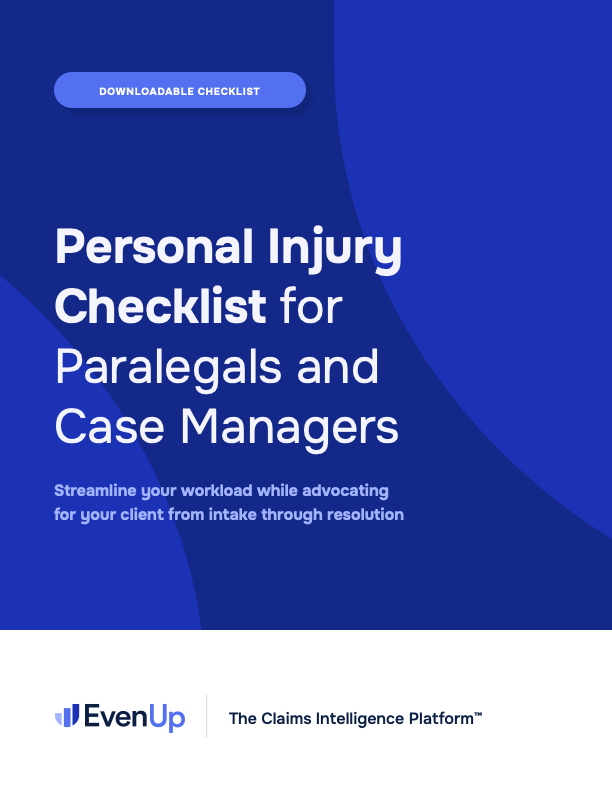1. Initial Client Intake and Case Evaluation
During the initial client intake and case evaluation phase, gathering comprehensive information about the incident is crucial, including the injuries sustained and the medical treatments received. Evaluating the case's viability involves assessing its merits to determine its potential for success. EvenUp's
Case Preparation™ tool is invaluable at this stage, as it automates case work-up by flagging missing medical records, identifying treatment gaps, and surfacing prior injuries. This thorough initial evaluation helps build a strong foundation for the case.
2. Medical Records ManagementEfficient medical record management is vital to supporting the client's case. This stage involves requesting and organizing all relevant medical documentation while maintaining a systematic approach to records management. Summarizing medical findings into concise and clear reports is also essential. EvenUp’s
MedChrons™ tool, powered by AI, simplifies this process by providing trusted medical chronologies with a complete treatment history, ensuring accuracy and efficiency in documentation.
3. Demand Package PreparationDrafting a compelling demand letter is a critical step when preparing a demand package. The letter should comprehensively outline the client's injuries, treatments, and the compensation sought. Additionally, calculating damages accurately—including economic and non-economic aspects—is essential to present a solid case.
Express Demands™—part of AI Drafts™—leverages EvenUp's purpose-built
Piai™ to craft detailed and persuasive demand letters. By analyzing over 250,000 verdicts and settlements,
Demands™ actually provides a 69% greater likelihood of tendering limits.
4. Negotiation and SettlementAs the case progresses to negotiation and settlement, thorough preparation is key. This involves gathering all necessary documentation, anticipating potential counterarguments, and effectively communicating with insurance adjusters or opposing counsel. EvenUp's
Negotiation Preparation™ tool offers insights that help navigate adjuster negotiations confidently. Additionally, the
Settlement Repository™ provides a data-driven approach to settlement outcomes, using historical data to inform and strengthen negotiation strategies.
5. Case Management and Performance TrackingOngoing case management requires diligent monitoring of progress, including tracking important deadlines, managing filings, and maintaining open client communications. Evaluating the firm's performance by analyzing key metrics helps identify areas for improvement. EvenUp’s
Executive Analytics™ offers a centralized dashboard with critical insights into your firm's performance, aiding informed decision-making and enhancing operational efficiency.
